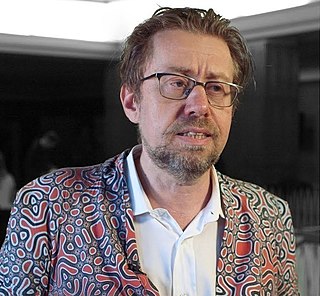A Quote by Aleksandr Solzhenitsyn
If we could all take a sober look at our history, then we would no longer see this nostalgic attitude to the Soviet past that predominates among the less affected part of our society.
Related Quotes
Human beings look separate because you see them walking about separately. But then we are so made that we can see only the present moment. If we could see the past, then of course it would look different. For there was a time when every man was part of his mother, and (earlier still) part of his father as well, and when they were part of his grandparents. If you could see humanity spread out in time, as God sees it, it would look like one single growing thing--rather like a very complicated tree. Every individual would appear connected with every other.
The Great Famine is a period of our history that we need to know in great detail in order to understand its continuing impact on us as a people. Its causes were complex. We can't apportion blame simplistically but rather [must] understand that blame has to be shared in different areas and levels of society. It was the very poorest of the poor, the small tenants and cottiers, who really suffered. Others were less affected. But most of all I welcomed the commemoration because it was a moment to look into our past and realize the courage and resilience of those who survived.
The materialistic pattern of life is that where money predominates over everything. The non-materialistic life is that where money is just a means - happiness predominates, joy predominates; your own individuality predominates. You know who you are and where you are going, and you are not distracted. Then suddenly you will see your life has a meditative quality to it.
What would happen if history could be rewritten as casually as erasing a blackboard? Our past would be like the shifting sands at the seashore, constantly blown this way or that by the slightest breeze. History would be constantly changing every time someone spun the dial of a time machine and blundered his or her way into the past. History, as we know it, would be impossible. It would cease to exist.
The separation of church and state is extremely important to any of us who holds to the original traditions of our nation. . . . To change these traditions . . . would be harmful to our whole attitude of tolerance in the religious area. If we look at situations which have arisen in the past in Europe and other world areas, I think we will see the reason why it is wise to hold to our early traditions.
Now is the time to take stock of a painful part of our history. Only then can we move past it. Anything less would render generations of courageous struggle and soul-searching a truly lost cause. A lot of Canadians don't seem to want to hear it. All I can say to them is: try to listen. Open your heart, your mind. The Indian Act and residential schools did a number on us, breaking down Indigenous people, then families, communities, nations. We can learn so much from each other. There is so much to be hopeful for.
If we could travel into the past, it's mind-boggling what would be possible. For one thing, history would become an experimental science, which it certainly isn't today. The possible insights into our own past and nature and origins would be dazzling. For another, we would be facing the deep paradoxes of interfering with the scheme of causality that has led to our own time and ourselves. I have no idea whether it's possible, but it's certainly worth exploring.
Are we our bodies? Is a small person less than a big person, then? If we were our bodies, then when we lost an arm, or a leg, would we be less, would we begin to fade from existence? No. We are the same person. We are not our bodies; we are our thoughts. As they form, they define who we are, and create the reality of our existence.
According to Buddhism, each person is a Buddha who has forgotten their original nature. If we in the pampered West, having grown up with so many advantages, could not claim our own health and our agency, preferring to see ourselves as helpless victims, then who would do it? Who would take responsibility for the world?
I look around the world, I don't see America's influence growing around the world. I see our influence receding, in part because of the failure of Barack Obama to deal with our economic challenges at home; in part because of our withdrawal from our commitment to our military in the way I think it ought to be; in part because of the turmoil with Israel.
Let's learn from history and take a look at other infamous socialist central-planning experiments like China's Great Leap Forward or the Soviet Union's Five-Year Plan. Like those two disasters, the Green New Deal would cripple our country and sacrifice Americans on the altar of environmental extremism.







































